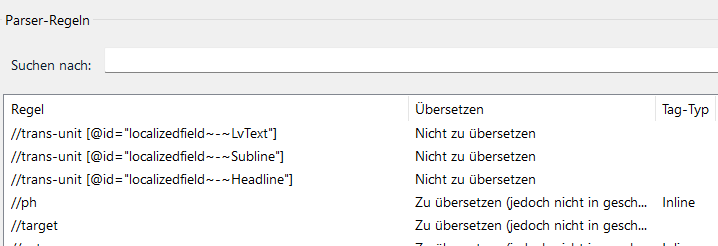Hello everybody,
we are struggleing with a xliff-file containig segments for which our costumer doesn't want any translation.

The segments are the tags with the following attributes:
- <trans-unit id="localizedfield~-~Headline">
- <trans-unit id="localizedfield~-~subline">
- ...
The files are bilingual, so we can not save them in xml for the translation process ... at least I think so.
In xml-filetype i was able to create the right parser rules:

I also tried with "tag-definition rules" in "Embedded content" in the xliff-filetyp, but without success.

Is there a solution for xliff-filetype?
Thanks a lot in advance.
Generated Image Alt-Text
[edited by: RWS Community AI at 12:52 PM (GMT 1) on 10 Jul 2024]


 Translate
Translate